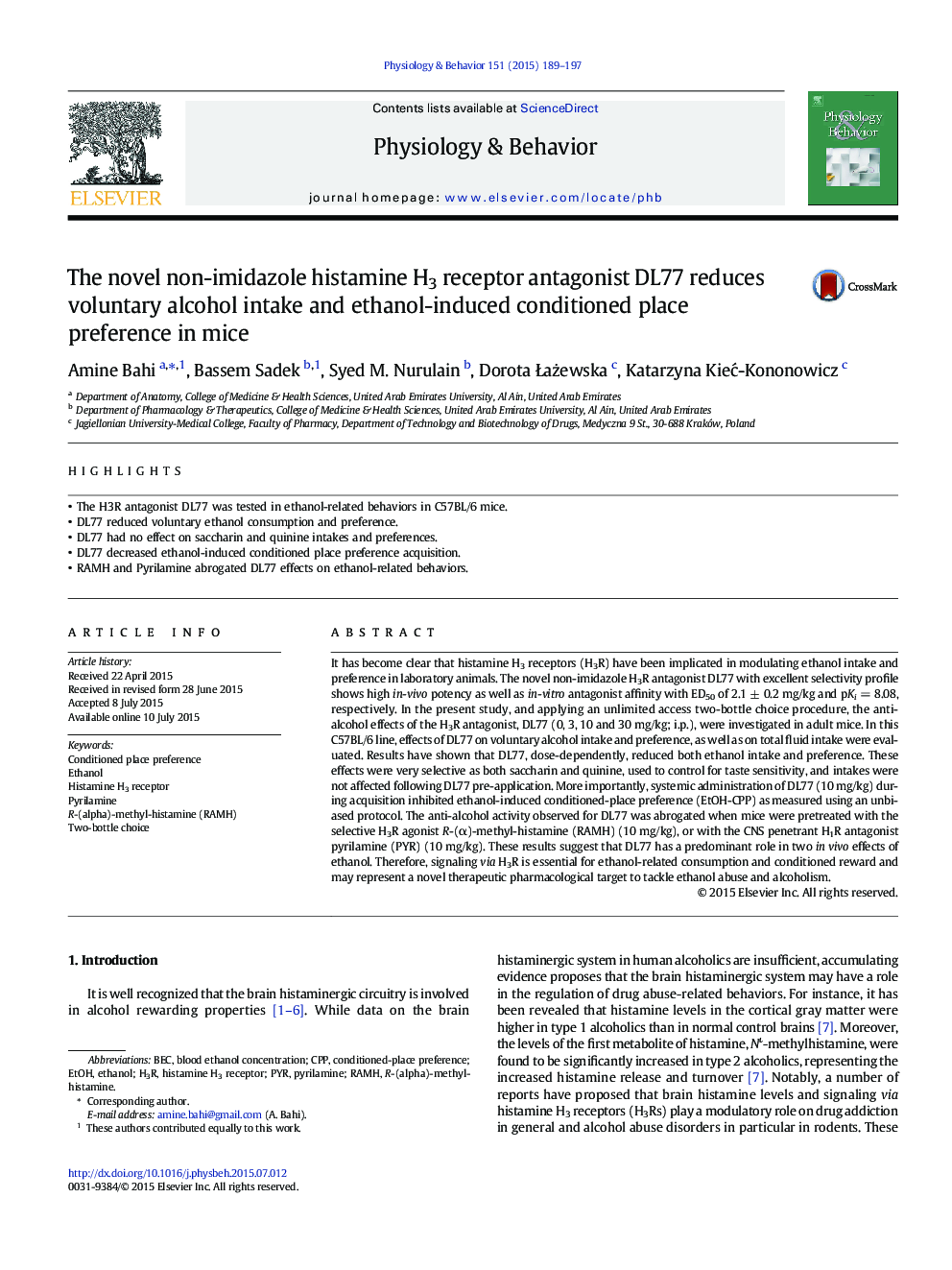| کد مقاله | کد نشریه | سال انتشار | مقاله انگلیسی | نسخه تمام متن |
|---|---|---|---|---|
| 5923254 | 1571166 | 2015 | 9 صفحه PDF | دانلود رایگان |
عنوان انگلیسی مقاله ISI
The novel non-imidazole histamine H3 receptor antagonist DL77 reduces voluntary alcohol intake and ethanol-induced conditioned place preference in mice
دانلود مقاله + سفارش ترجمه
دانلود مقاله ISI انگلیسی
رایگان برای ایرانیان
کلمات کلیدی
موضوعات مرتبط
علوم زیستی و بیوفناوری
بیوشیمی، ژنتیک و زیست شناسی مولکولی
فیزیولوژی
پیش نمایش صفحه اول مقاله

چکیده انگلیسی
It has become clear that histamine H3 receptors (H3R) have been implicated in modulating ethanol intake and preference in laboratory animals. The novel non-imidazole H3R antagonist DL77 with excellent selectivity profile shows high in-vivo potency as well as in-vitro antagonist affinity with ED50 of 2.1 ± 0.2 mg/kg and pKi = 8.08, respectively. In the present study, and applying an unlimited access two-bottle choice procedure, the anti-alcohol effects of the H3R antagonist, DL77 (0, 3, 10 and 30 mg/kg; i.p.), were investigated in adult mice. In this C57BL/6 line, effects of DL77 on voluntary alcohol intake and preference, as well as on total fluid intake were evaluated. Results have shown that DL77, dose-dependently, reduced both ethanol intake and preference. These effects were very selective as both saccharin and quinine, used to control for taste sensitivity, and intakes were not affected following DL77 pre-application. More importantly, systemic administration of DL77 (10 mg/kg) during acquisition inhibited ethanol-induced conditioned-place preference (EtOH-CPP) as measured using an unbiased protocol. The anti-alcohol activity observed for DL77 was abrogated when mice were pretreated with the selective H3R agonist R-(α)-methyl-histamine (RAMH) (10 mg/kg), or with the CNS penetrant H1R antagonist pyrilamine (PYR) (10 mg/kg). These results suggest that DL77 has a predominant role in two in vivo effects of ethanol. Therefore, signaling via H3R is essential for ethanol-related consumption and conditioned reward and may represent a novel therapeutic pharmacological target to tackle ethanol abuse and alcoholism.
ناشر
Database: Elsevier - ScienceDirect (ساینس دایرکت)
Journal: Physiology & Behavior - Volume 151, 1 November 2015, Pages 189-197
Journal: Physiology & Behavior - Volume 151, 1 November 2015, Pages 189-197
نویسندگان
Amine Bahi, Bassem Sadek, Syed M. Nurulain, Dorota Åażewska, Katarzyna KieÄ-Kononowicz,